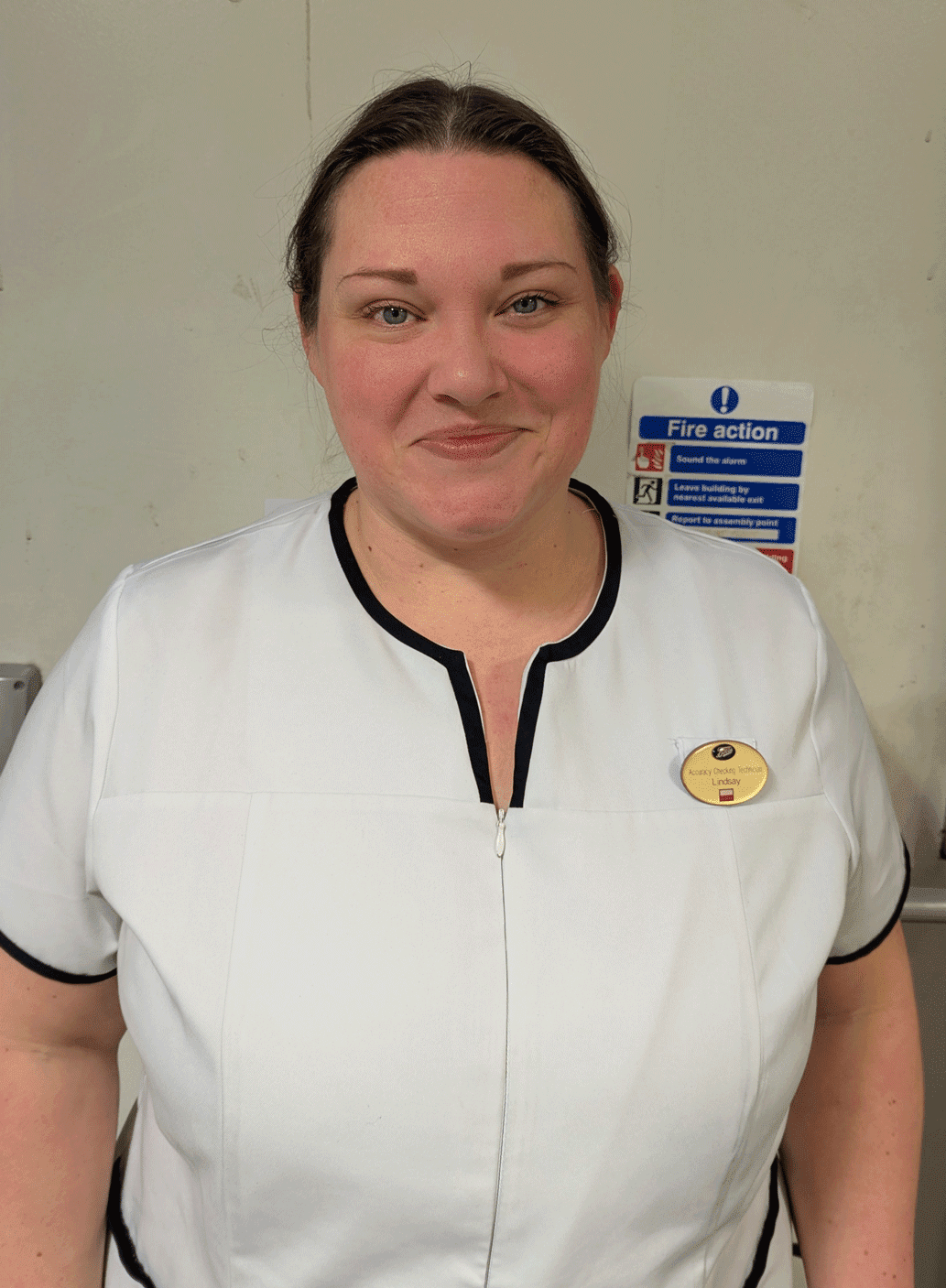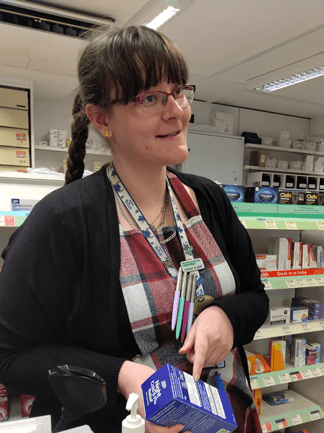Elaine’s role as a Boots Healthcare Academy Trainer, being a Mental Health First Aider and tackling loneliness
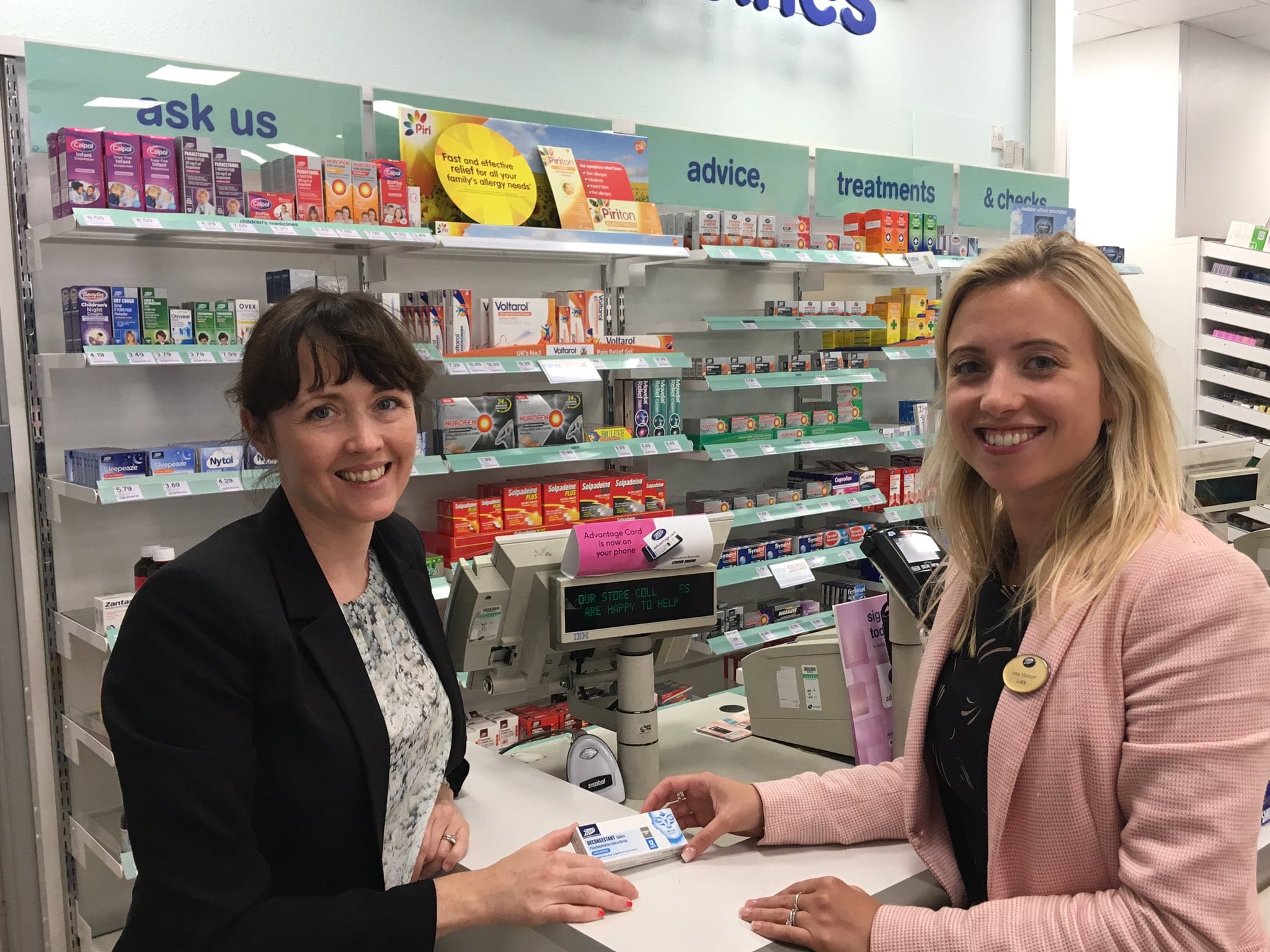
My name is Elaine Carville and I am a Healthcare Academy Trainer (HAT) based in London and a Boots Teacher Practitioner at UCL School of Pharmacy. The Boots Summer Pharmacy Placement confirmed my passion for community pharmacy, which then led to Pre-registration (now Trainee Pharmacist) and Newly Qualified Pharmacist positions with the company. In my early career, I found being based in one place allowed me to build strong ties with the local community and other healthcare professionals, which was really rewarding.
Since then I have worked in various field roles including Pharmacy Services Pharmacist and Area Manager, and for the last ten years in Professional Development as a Healthcare Academy Trainer. This led me to joining the pharmacy practice team at UCL in September 2017.
One of the things I love about working at Boots is that we see the patient behind the prescription, and we are often industry-leading in initiatives to support our patients. As a Healthcare Academy Trainer, I had the opportunity to become a Dementia Friends Champion and was involved in training our Pharmacists and store leaders to be Dementia Friends in 2014, five years prior to it becoming a requirement of the Community Pharmacy Contractual Framework.
I saw first-hand how this training helped me in my interactions with my mother-in-law who was diagnosed with Alzheimer’s in 2013 and I feel Dementia-friendly communities are key to helping people who are living with dementia to live well and not feel isolated by their diagnosis. As a result, I have continued to work as a Dementia Friends Champion outside of work, leading sessions in primary schools and within my role at UCL.
Your role as a Healthcare Academy Trainer & Boots Teacher Practitioner at UCL School of Pharmacy
My working week is very varied. On Mondays I am at UCL where my role is to represent community pharmacy and bring the students’ learning to life with real examples of practice. I teach dispensing classes, run practice workshops, arrange placements and deliver lectures. Since the new GPhC standards for the initial education and training of Pharmacists are being built into the MPharm course, it is a really exciting time to be involved in the journey of future Pharmacists.
When I qualified over 20 years ago, I didn’t see myself vaccinating or prescribing, but these are all day-to-day practices. Tuesday and Wednesdays are my Boots days and are largely focused on looking after my Trainee Pharmacist group – I see them fortnightly either online or face-to-face for training days and support them, their supervisors and line managers throughout the year.
Another aspect of my job that I enjoy is visiting our Newly Qualified Pharmacists in-store. The jump from Trainee Pharmacist working alongside your supervisor to being a Responsible Pharmacist is huge. They really appreciate the feedback on their practice and having a peer to talk through any challenging situations they have come across.
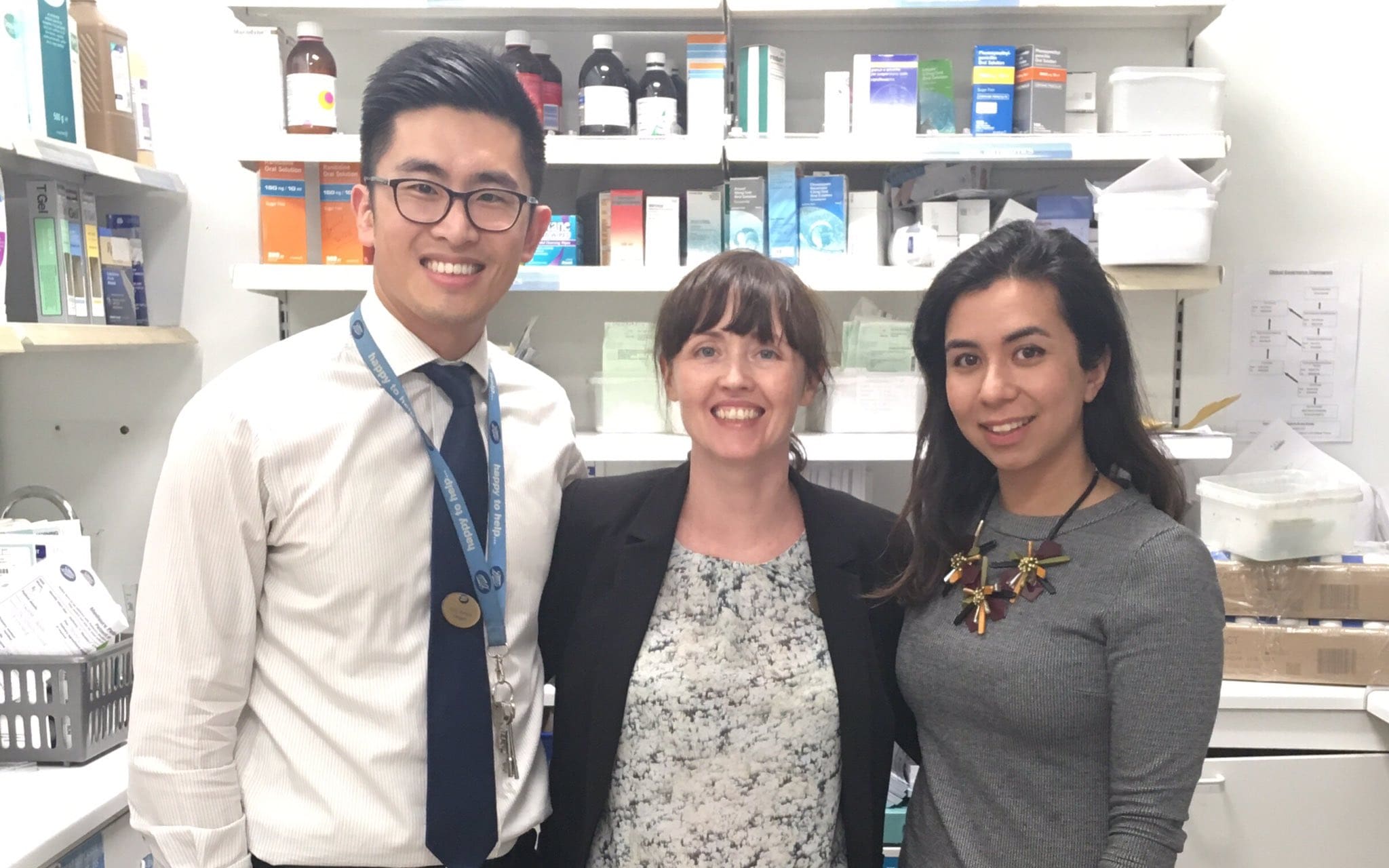
Being a Mental Health First Aider
A Mental Health First Aider (MHFA) is able to spot the signs and respond to the mental or physical health needs of a person experiencing a mental health issue. As Healthcare Academy Trainers (HATs), we attended a two-day face to face course with Mental Health First Aid England in 2019 to equip us in our role. As Pharmacists it consolidated the knowledge we already had about mental health conditions and builds on this by giving us the confidence to support a person in distress, tips for reasonable mental health adjustments at work and the skills to create a positive mental health culture in the workplace.
The key skill I feel you need as a Mental Health First Aider is the ability to actively listen. Working alongside the other trained HATs keeps this constantly alive for me and I am inspired when I hear of how they are helping others.
The populations I support in my role are in major transition periods in their lives: students are maybe miles from home for the first time, Trainee Pharmacists are joining the world of work for the first time and trying to balance a full-time job with study, Newly Qualified Pharmacists are suddenly responsible for all the professional decisions which affect their patients and team and some have aspects of their personal life or health which also have an impact on their mental health day to day and at work.
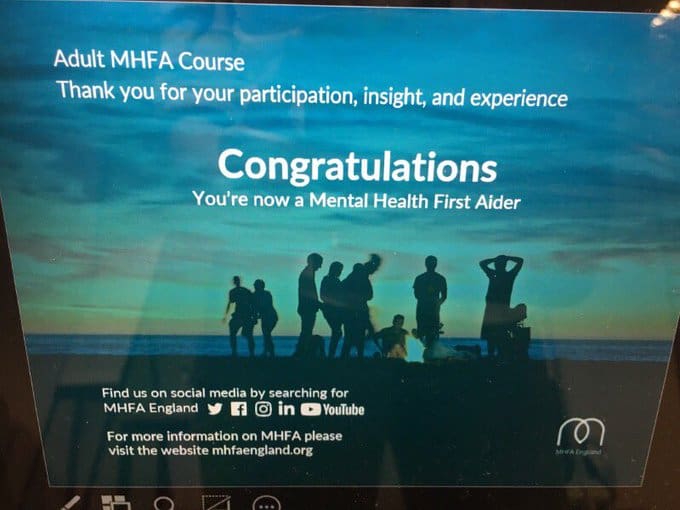
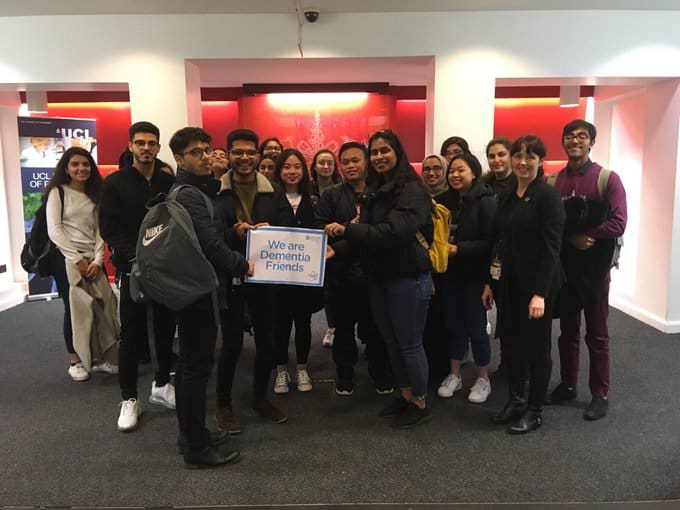
Mental Health Awareness Week and this year’s theme: Loneliness
As a MHFA I am conscious that simple things can make someone feel included or excluded. Never underestimate a smile or “Hello, my name is…”. I wholeheartedly believe in the five ways of wellbeing (connect, be active, take notice, learn, give) and try to build this into my training interventions on study days and in store. One of the five ways of wellbeing is to Connect with others, so for someone experiencing loneliness I would try to coach them to think of ways they could connect more with those around them.
To the untrained eye I would say never assume that because someone is in a crowded room, they do not feel lonely. Some clues that a person is feeling lonely might be if they have had a significant change to their routine, neglecting their appearance or personal hygiene, not eating properly, putting themselves down, or simply just not being themselves.
It may be difficult for the person to admit they are lonely, in 2018 the Mental Health campaign was to ‘Ask Twice’ as often the first response people give to ‘How are you?’ is ‘I’m fine’. The simple act of asking twice can help someone open up to how they are really feeling. Helping for me goes back to that important skill of listening. Let them know you are there for them, be patient with them and reassure them that there is support out there. I think it’s important to recognise that you are not an expert and that that support might need to come from a healthcare professional or specialist service.

Shattering the stigma around loneliness with hashtag #IveBeenThere
When someone is lonely, they can feel like no-one else has been in a similar situation or felt as isolated, that is why it is important that we share our experiences. It is only by talking openly and honestly about our experiences that the stigma surrounding mental illness can be broken. My own experience of loneliness was my journey to become a mother. While everyone around me seemed to be starting their families with ease we had disappointment after disappointment, grueling IVF cycles and the stillbirth of our first daughter Megan. My family, friends and team members around me were brilliant, but only in the company of those who had experienced loss like that did I not feel alone. I feel so blessed to have my two children now and feel responsible for encouraging good practices early on to support their mental health. Every night, no matter how busy the day has been, I make time for a cuddle and chat at bedtime. We talk about what was good and tricky about the day and we always make time to think of one thing we are grateful for.
For Mental Health Awareness week, I would encourage others to think about who they could connect with. If everyone reached out to just one person they knew was lonely, what a difference that would make. My kids and I are making more regular video calls to my brother who has just lost his companion in his dog. I would also encourage people to share their experiences of feeling lonely to break the stigma around talking about mental health, so people find it easier to access the support they need using the hashtag #IveBeenThere
Thank you Elaine for sharing your story. For more information and resources surrounding Mental Health Week, click here.


